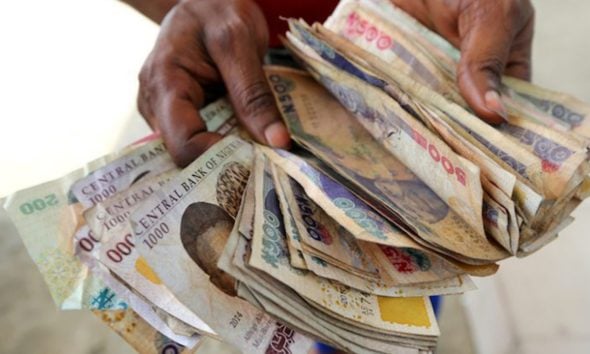
Some commercial banks yesterday resumed the issuance of the old N500 and N1000 denominations to the public.
The move followed a Supreme Court judgement, which extended the validity of the banknotes till December 31, 2023.
In another development, the Central Bank of Nigeria (CBN) yesterday disclosed that total repayments under its Anchor Borrowers’ Programme (ABP) stood at N503 billion, representing 52.39 per cent of total exposure.
On the issuance of the old banknotes to customers, THISDAY, however, gathered that the absence of a statement by either President Muhammadu Buhari or the apex had resulted in uncertainty, as businesses in Abuja and other places continued to reject the old denominations.
Since the Supreme Court’s ruling, no further clarification or directive had been issued by the central bank, a situation that has caused the banking public to take precaution with regard to the old notes.
THISDAY further learnt that some GTBank and Access Bank branches paid out the old banknotes in Abuja. In Lagos, it was gathered that Sterling Bank and Access Bank at Iyana Ipaja loaded the old N1000 and N500 notes on their ATMs and people were withdrawing them.
However, scarcity of cash remained evident across the Federal Capital Territory (FCT), as practically none of the Point of Sale (POS) agents had cash at the time of the check.
A POS operator told THISDAY that it was sickening to idle at banking premises only to be given between N2000 and N5000 at the end of the day.
Findings further revealed that many POS operators resorted to online money transfers and did very little cash exchanges.
Analysts, however, believed that cash availability and circulation would greatly improve in the coming days following the apex court’s decision. They also hoped that the conclusion of the general election next week would lead to some monetary policy decisions that would improve cash circulation in the economy.
Ultimately, providing clarity and direction on the court’s ruling would quell apathy on the part of the banking public, many believe.
Meanwhile, CBN yesterday disclosed that total repayments under its ABP stood at N503 billion, representing 52.39 per cent of total exposure.
Addressing journalists in Abuja, CBN’s acting Director, Corporate Communications Department, Dr. Abdulmumin Isa, added that the balance of N 119 billion was not due for repayment.
The International Monetary Fund (IMF) last week said only 24 per cent of loans collected by farmers under the ABP had been repaid. This implied that 76 per cent of the loans were yet to be paid.
But in his reaction to the IMF, Isa said the CBN remained committed to its development finance mandate of stimulating access to finance for the real sector.
Providing further update on the ABP, Isa said the bank had released the sum of N1.08 trillion, as of February 28, 2023, of which N960 billion was due for repayment. He said CBN ABP had supported about 4.57 million smallholder farmers who cultivated over 6.02 million hectares of 21 commodities across the country as of February 2023.
He listed the commodities to include rice, wheat, cowpea, millet, maize, cotton, fish, soya bean, poultry, and cassava.
Others are groundnut, ginger, sorghum, oil palm, cocoa, sesame, tomato, castor seed, yellow pepper, onions, and cattle/dairy.
Further citing data from the Food and Agriculture Organisation (FOA), the acting director noted that the ABP had contributed significantly to increased national output of focal commodities, with maize and rice peaking at 12.2 million metric tonnes and 9.0 million metric tonnes in 2021 and 2022, respectively.
Isa said the programme had also helped to improve the national average yield per hectare of these commodities, with productivity per hectare almost doubling within the eight years of the programme’s implementation.
Isa further noted that repayments under the ABP were made through cash or produce by the beneficiaries, adding that the outstanding due balance on loans was still under moratorium due to the COVID-19 forbearance granted to beneficiaries through the apex bank’s interventions in March 2020 and extended to February 28, 2022.
Isa explained, “It is pertinent to note that the tenure of loans under the ABP is based on the commodity gestation period. For instance, loans granted to farmers cultivating some perennial crops could have up to seven-year tenure.
“The CBN remains committed to its development mandate of stimulating access to finance for the real sector, particularly agriculture, as it continues to support the federal government’s drive for food security and economic growth.
“Accordingly, the CBN continues to welcome applications from eligible Nigerian farmers and firms under the Anchor Borrowers’ Programme.”
Isa added that the central bank’s core objective of catalysing the productive base of the economy had continued to support investments in capital assets in sectors with high-growth and employment-elastic potential through its various interventions.











They just suffered us for nothing. Buhari and Emefiele failed on this one. There was still evidence of vote buying in the last election and now corrupt politicians that have stock pilled the old notes at home can have ample time to change it.